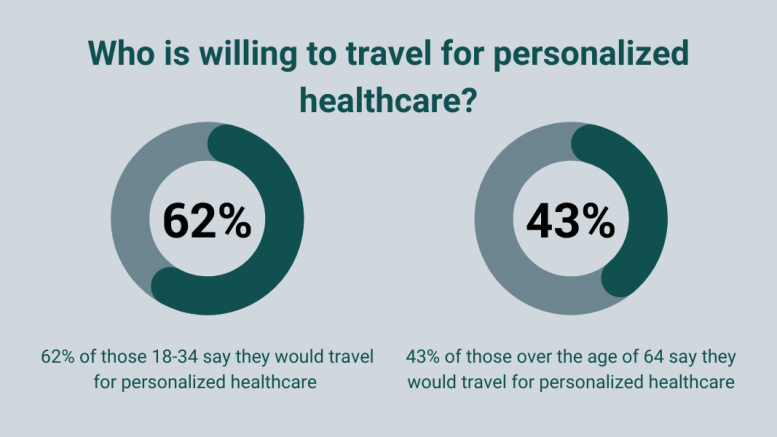Survey Shows Public Support for Personalized Healthcare, Despite Ongoing Concerns About the Costs of Medical Care
Research from health technology pioneer Dosis suggests that a large majority (85%) of people believe personalized medicine can enhance care delivery.
Dosis, a personalized dosing platform focused on chronic disease management, surveyed more than 1,000 people, and found that nearly 80% of respondents think personalized medicine should become the standard of care for everyone.
“Personalized medicine is going to be the standard of care, and our survey suggests a large majority of people want these tools and technologies adopted widely,” said Shivrat Chhabra, CEO and co-founder at Dosis. “Personalized medicine truly is the way of the future.”
The key themes revealed in the survey include:
- A large majority of respondents have confidence in the vision and future of personalized healthcare
- There is significant support for seeing personalized medicine tools and technologies adopted widely
- The cost of healthcare is frequently on people’s minds, as a majority of respondents think about the cost of healthcare at least once per quarter
Confidence in Personalized Medicine
The survey clearly demonstrates that a large majority of respondents have confidence in the future of personalized medicine and healthcare. The survey defined personalized medicine as “the tailoring of medical treatment to the individual characteristics of each patient based on their predicted response or risk of disease. The approach relies on scientific breakthroughs in our understanding of how a person’s unique physiology affects their susceptibility to diseases and their response to treatments.”
In the survey, 85% of respondents said they believe personalized medicine can enhance care delivery. A majority (57%) also said they think technology is vital for the evolution of healthcare.
Wide Adoption
Based on the survey results, there is clear support for seeing personalized medicine tools and technologies adopted widely. When asked, “Do you think personalized medicine should become the standard of care for everyone?”, the majority (79%) responded affirmatively. Cancer, autoimmune conditions, and heart disease were the top responses when asked for which conditions it would be most important to receive personalized healthcare.
Cost of Healthcare
While healthcare costs are on the minds of a majority of those surveyed (73% think about the cost of healthcare at least once per quarter), 50% are willing to pay more for personalized healthcare. And of those, 69% of respondents would be willing to pay out of pocket for personalized healthcare. In other words, the confidence in the potential of personalized healthcare is so great that these individuals would be willing to pay extra, despite already being concerned about the cost.
This is further supported by the fact that 54% of those surveyed would travel to see a medical professional who offered personalized healthcare. Younger generations especially are more willing to travel to see a medical professional who offers personalized healthcare, with 62% of those 18-34 saying they would travel compared to 43% of those over the age of 64.
There was also a clear willingness to undergo testing in order to personalize care delivery. In the survey, 79% of respondents said they would take a diagnostic test in order to receive more personalized healthcare, and, of those, 73% said they would take the test if it resulted in more effective treatment for their condition(s).

